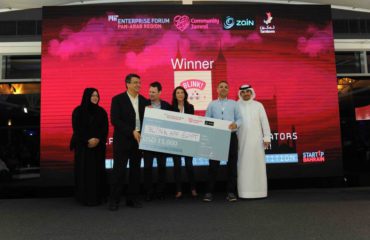BlinkApp get funded from ITAC program
BlinkApp successfully selected to be funded from Information Technology Academia Collaboration Program (ITAC) under IT Industry development Agency (ITIDA) Egypt. collaborative funded project helping the industries to develop projects in collaboration with the academia research centers as a R&D arm form the companies. BlinkApp & Egypt Japan University for Science and Technology (EJUST) agreed to apply for ITAC program on 2014 and win the first grant on march 2015 to start the prototype of the project. The project funded with $90,000 and completed at the end of 2016. BlinkApp and EJUST applied again for ITAC to start the second grand on 2018 and completed the full product by the start of 2020 with a fund of $120,000. ITIDA and EJUST helped BlinkApp to bring the idea to prototype and then to the final product and we shall bring the full thankful for both of them.
About ITAC:
Collaborative Funded Projects, one of ITAC’s programs, move a product concept out of the ideas shed, through the proof-of-concept and prototyping stages, until it turns into a complete product ready to hit the market.
Opening and closing points of each project can be defined as follows:
Proof-of-concept is the solid work published by the applicants in a journal, a patent owned by the applicants, or promising preliminary results of the proposed research or methodology.
Prototype is a working but not necessarily complete product. It may still need additional research for improving its output, lack some features, or need customization for specific applications.
Final product should satisfy all specifications of a commercial product and should be ready to bring to market by the end of PDP period.
IT Academia Collaboration finances three categories of collaborative funded projects, CFPs: product development projects (PDP), advanced research projects (ARP) and preliminary research projects (PRP).
The research component, a key element within these projects, requires synergy between the ICT industry partners and the Egyptian IT universities or research institutes. The roles of the academic principal investigator (also known as PI) and the industrial partner (IP) should be clearly defined in the proposals submitted by applicants.
ITAC Project Objectives:
- Unlock research potential in local universities and tech institutes
- Develop research capabilities in research centers within companies
- Create innovative, yet competitive products for both society and marketplace
- Connect scientific research institutes with industry entities
- Boost the national income
Project Benefits:
ITAC beneficiaries include local ICT enterprises, universities and research centers.
Collaborative funded projects, CFPs, conducted between companies and research bodies:
- Preliminary research project; starts as an idea and ends at a proof-of-concept. PRPs receive funding up to EGP 250,000
- Advanced research project; is the progress of proof-of-concept into a prototype. ARPs get a funding amounted at EGP 1,500,000 (a partial reimbursement)
- Product development project; develops a prototype into a product. The funding of PDPs is up to EGP 2,500,000 (a partial reimbursement)
- Staring from round# 28, the ITAC program is announcing that ICT companies can apply for PDP fund solely without academic partner upon the fulfillment of the following conditions:
- The prototype was developed by the company R&D team
- The prototype has an innovation that can be patented or published
- The company has a research team that is capable of filling in the research institutes role within the submitted project.
About EJUST:
Egypt-Japan University of Science and Technology (E-JUST) is a research university with an ambition to cultivate an academic environment and become a benchmark for the Egyptian and African countries in education. It was first established as a bilateral agreement project between the Egyptian and Japanese governments in May 2009 and later in 2010 it was ready to accept its first batch of students and make the dream a reality.
There is a strong relationship between both governments where they both divide the cooperation cohesively to ensure positive results. The Japan International Cooperation Agency (JICA) fully supports EJUST by sending their administrative and academic experts to assist and guide in the technical and managerial system of the university, as well as sending academic experts from the Japanese Supporting University Consortium (JSUC) to support in teaching, conducting joint research and co-supervising graduate students. Additionally, they provide state-of-the-art machinery, equipment and tools for research purposes. The Egyptian government fully runs and financially supports the university, which is managed by Egyptian members from both the academic and administrative staff.
All decisions that govern the university are made through its Board of Trustees (BOT) which is composed of 15 prominent figures from Egypt and Japan. They represent stakeholders from the government, as well as members from the academic field and industry from both countries.
Links:
https://www.itida.gov.eg/English/Programs/ITAC-CFP/Pages/default.aspx







